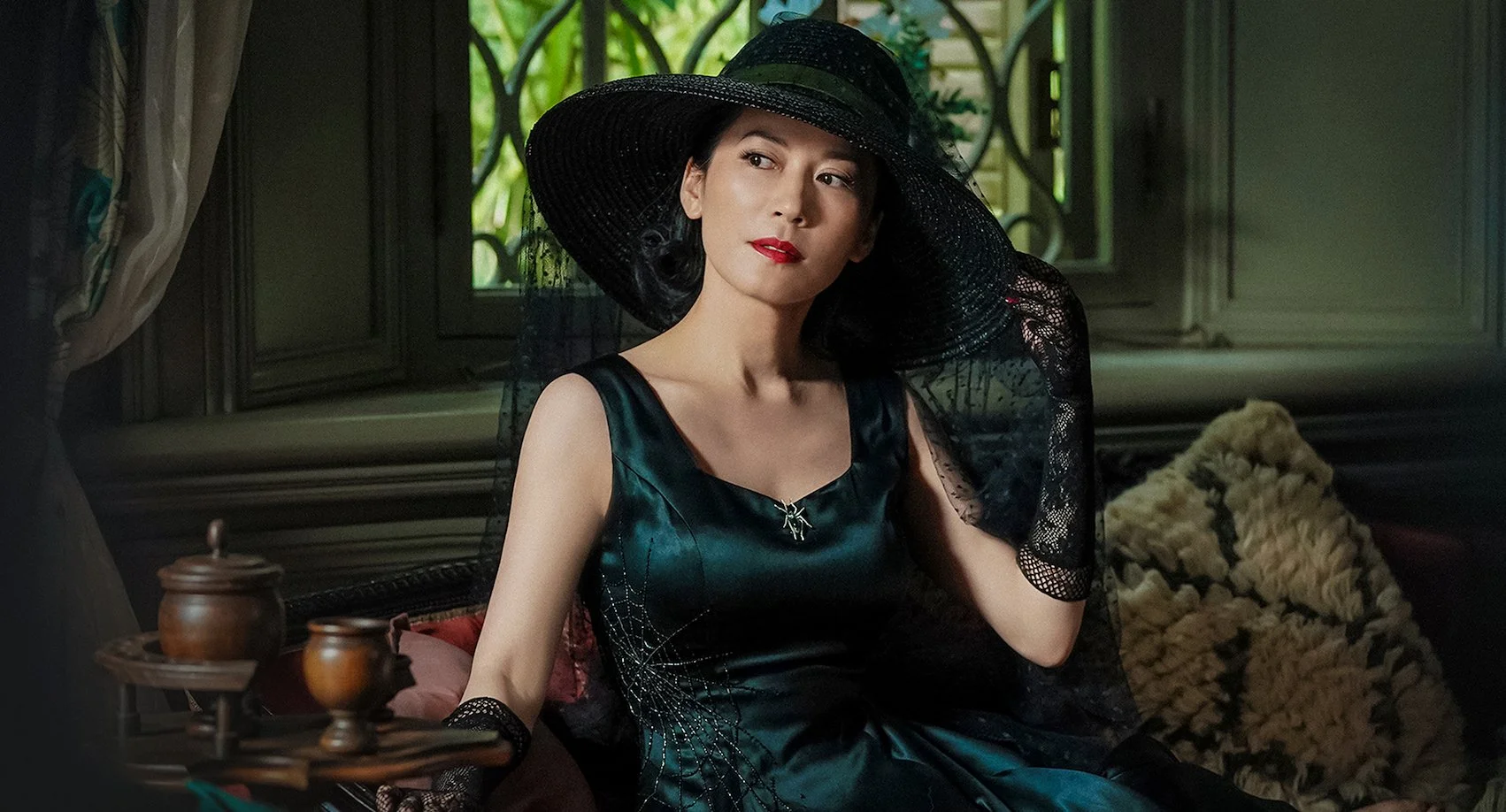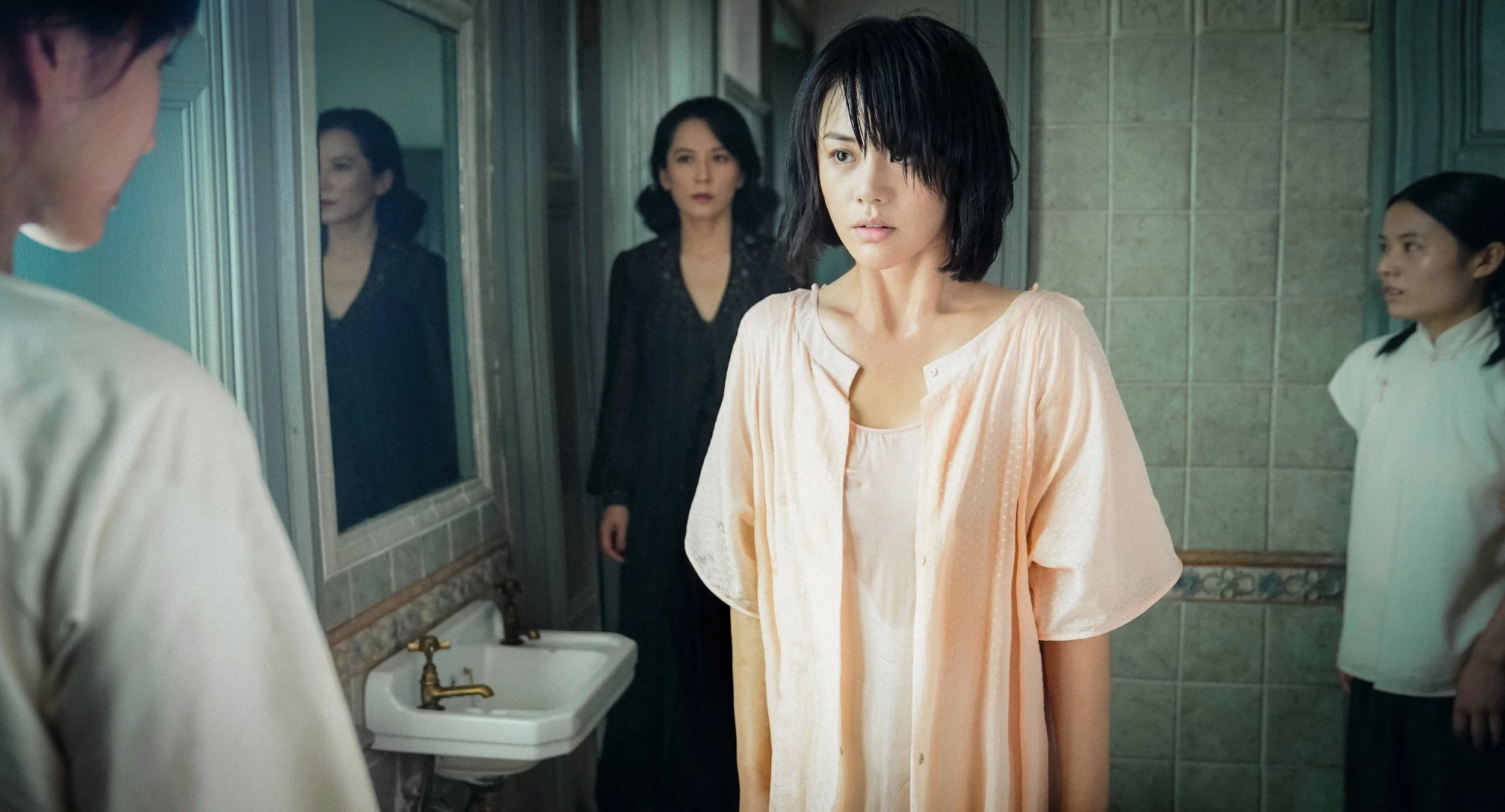The Price of Love
Hong Kong director Ann Hui completes an unofficial Eileen Chang trilogy with a sensuous, stately and exquisitely appointed adaptation about another woman on the verge.
love after love
Director: Ann Hui • Writer: Wang Anyi
Starring: Ma Sichun, Faye Yu, Eddie Peng, Isabella Leong, Ning Chang, Paul Chun, Wei Fan
China • 2hr 24min
Opens Hong Kong Nov 25 • IIA
Grade: B
In many, many ways, Ann Hui’s latest is a must-see for a certain cinema-going set. It has so much going for it that the credit list alone will sell tickets. The film is Love After Love | 第一炉香, and it is based on a short story, “Aloeswood Incense: The First Brazier,” by acclaimed Second World War era writer Eileen Chang. The screenplay is by contemporary Chinese author Wang Anyi. Christopher Doyle lends the film some of his signature evocative, emollient cinematography. His job is made easier by late Japanese costume designer Emi Wada. The score comes courtesy of composer and one-time rock star Ryuichi Sakamoto. These people are so renowned for award-winning, innovative work their credits don’t need listing. Oh, and of course holding it all together is Hui, she of a dozen Hong Kong Film Awards and a freshly minted Honorary Golden Lion for Lifetime Achievement from the 77th Venice International Film Festival.
So why isn’t Love After Love absolutely breathtaking? This could be Hui’s most technically accomplished work, a hushed and handsome production with nary a detail out of place. It’s impeccably composed and very much of a piece with Hui’s entire body of work. Be it modern Tin Shui Wai or mid-century Victoria Island, the film is about a woman forced into impossible positions because of the social expectations of the time, and god forbid she push back on them. This is Hui at her most muted and stately, but it’s the feverish moments that stand out. There just aren’t enough of them.
In the late 1930s, young, naive student Ge Weilong (Ma Sichun, best known for Derek Tsang’s Soul Mate) travels from her home in Shanghai to Hong Kong with the aim of completing her education. She seeks aid from her wealthy aunt, her father’s sister, Madame Liang (an incredibly compelling Faye Yu, The Joy Luck Club), who takes her in despite wanting nothing to do with her brother. The rift between them remains a mystery. Little does Weilong realise, however, that Madame Liang is kind of broke, and she keeps up crucial appearances by appealing to the vanity and perviness of Hong Kong’s elite — like “Uncle” (Fan Wei) — to keep her in the lifestyle to which she has become accustomed. Liang keeps an army of beautiful women in the house to ensure the contributions from rich guys keep coming. Her social circle thinks the worst of her, so she leans into her image, demonstrating no shame whatsoever when she decides she wants a piece of Weilong’s suitor, Lu Zhaolin (Yin Fang). Guilt? Nope. In this world, romance is transactional.
So far so Chang. Regardless of what you may think of Auntie, she’s existing within a framework that has been imposed upon her as a widow, and Hui and Wang have a grand time ushering Weilong along the same, inevitable path as her aunt. Same goes for the other women that surround them, like housekeeper Ni’er (Ning Chang), apprentice Sui Sui (Zhang Jianing) and a local socialite (Isabella Leong), who are just as trapped as Liang and Weilong are. Production designer Zhao Hai’s impeccable interiors are as stifling as they should be, while outwardly displaying a veneer of sophistication. The film’s layers run deep, in the space and in the characters: scratch the gorgeously gilded surfaces and the rot is visible not to far below, in both ulterior motives and economic realities.
There are narrative layers at play too. After laying the foundation for a space where everything is a commodity for sale, the film changes tack and heads into melodrama territory. As Weilong slowly comes to realise the expectations of her, she falls in with womaniser George Chiao (Eddie Peng, leveraging his ability to effortlessly toggle between sexy lunkhead and manipulator to maximum effect), who’s playing a game similar to Madame Liang’s: his father (Paul Chun) is mostly like going to cut him out of any inheritance — if there’s anything left. Like his sister (Leong), he hopes to marry rich. So when he gets into it with Weilong, he’s honest. He never promises her anything. Needless to say their relationship, such as it is, spirals downwards into a toxic morass of jealousy, control and astounding insensitivity. The film ends on an “Oh, shit!” note reminiscent to The Graduate, that distils the entire story down to a single pithy, bitter point.
You could take any frame from Love After Love, print it and mount it on your wall the film is so lush and tactile. But it meanders in the second half and it’s hard to stay invested in George and Weilong’s failing romance. For all its outward warmth, it’s a coolly detached film. Ma is saddled with the unenviable task of making Weilong relatable through the demands of mid-century “Sit Still, Be Quiet and Look Pretty” attitudes, which keeps the character from fully blossoming. She remains something of a cypher who we never completely understand, though to Hui’s credit Weilong never comes across as foolish. She’s just stuck. Madame Liang, however, is a fascinating character and Yu emerges as the beating heart of the movie: luminous, self-aware, cagey, bitchy… all that good stuff. There’s got to be another Chang story out there for her. More, please.




